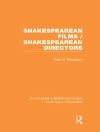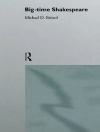In ‘Stories from the Greek Tragedians, ‘ Alfred John Church artfully distills the essence of ancient Greek tragedies, presenting a collection that captures the timeless themes of fate, heroism, and moral dilemmas. Church’s narrative is imbued with a clarity that brings to life the intricate plots and profound emotions of tragic figures such as Oedipus and Medea. His style, accessible yet eloquent, allows modern readers to grasp the significance of these works within the context of classical literature and their enduring impact on Western storytelling traditions. Each story unfolds with careful attention to both its dramatic stakes and philosophical implications, making the ancient tales resonate with contemporary concerns. Alfred John Church, a noted classicist and educator, possessed a deep appreciation for the Greek literary canon, gleaned through years of scholarly dedication. His background as a translator and writer fostered his ability to convey complex themes in a manner that respects their original context while making them approachable for today’s audience. Church’s intent to educate and inspire is evident in his selection of stories, drawn from prominent playwrights such as Aeschylus, Sophocles, and Euripides. This volume is a valuable resource for readers seeking to delve into the roots of tragedy and the philosophical inquiries it presents. It serves not only as an introduction for the uninitiated but also as a refreshing perspective for those familiar with these classic narratives. Church’s retellings illuminate the moral complexities and emotional depth of the original works, encouraging readers to reflect on their relevance in modern life.
About the author
Alfred John Church (1829-1912) was a renowned classical scholar and author, particularly esteemed for his contributions to making ancient Greek and Roman literature accessible to the English-speaking world. Church was born on January 29, 1829, in London, England, and demonstrated a keen interest in classical languages and literature from an early age. He pursued his passion at Lincoln College, Oxford, where he later became a tutor and took holy orders. Church’s literary career was marked by his dedication to translating and retelling ancient classics, rendering them into a prose that retained the elegance and vitality of the original works while making them understandable and engaging to contemporary readers.
His work, ‘Stories from the Greek Tragedians’ (1879), is a prime example of his adept skill as an adapter of ancient texts. The book delivers vivid retellings of Greek tragedies, including those by playwrights such as Sophocles, Euripides, and Aeschylus, thus providing young learners and general readers with an approachable introduction to these monumental works of literature. Church’s narrative style in this and other works combines scholarly rigor with a narrative charm, allowing his translations to stand the test of time as both educational resources and enjoyable readings. Beyond his contributions to classical literature, Church also produced historical writings and school textbooks, further cementing his legacy as a significant figure in the promotion of classical education.












